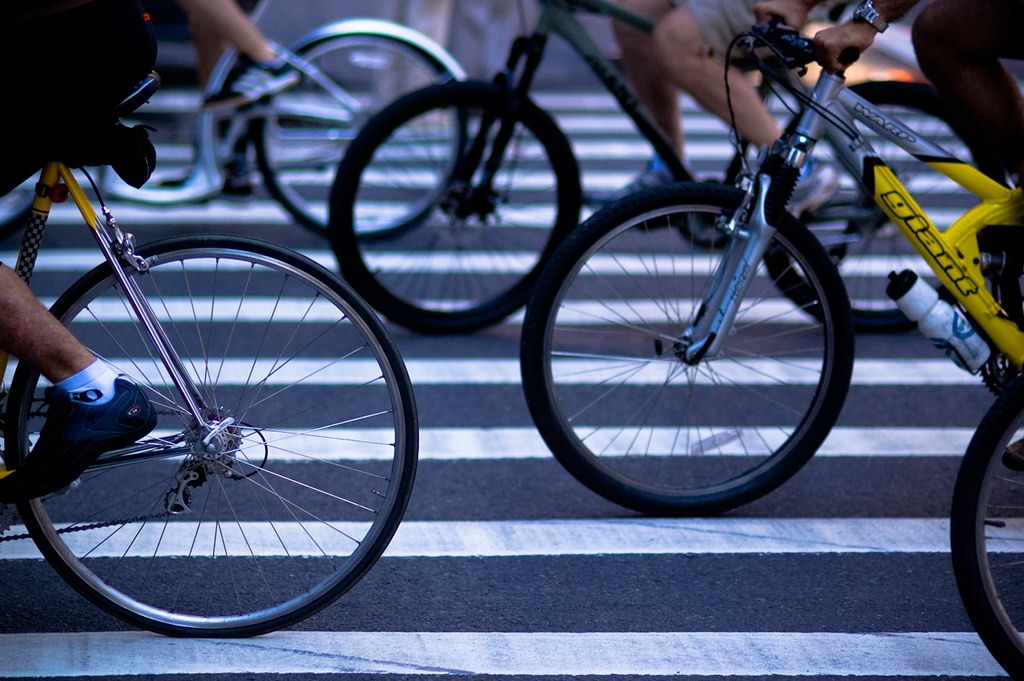COP26’s starting date, October 31st, is a good reminder of the looming threat of climate change. There is plenty spooky about the current state of the world: If global aviation was a country, it would be in the top 10 for carbon dioxide emissions, yet on October 27th Rishi Sunak announced that he would make domestic flights cheaper. It has been confirmed that fuel duty will remain frozen, as it has been since 2009. The first person in the UK to die and have air pollution listed as their cause of death has already happened, but the system that caused this isn’t being dismantled. Throughout the world, approximately one quarter of all carbon dioxide emissions are from transport.
There are many immediate actions that the government could take in order to put us on the right trajectory. One example can be found in cycle schemes, which deduct a portion of the overall cost of a bicycle from a person’s paycheque, many individuals choose to access cycling in this way, making the switch from cars easier.
However, these schemes are not without their flaws. What is often unclear to employees, or can act as a deterrent if they are already aware, is the fact that this is actually more of a lease in most circumstances. For instance, if you hire a bike under the Halfords’ Cycle 2 Work scheme and your employment ends before your contracted agreement, the remaining balance on the bike will be deducted from your final pay cheque.
Such unfairness being built into cycle schemes is an inevitable consequence from being run entirely by the private sector; meaning their profit margins will almost always come before any real commitment to helping people make the change from cars to bicycles. This is further underlined by the fact independent cycle retailers face exorbitant fees for operating such schemes, which can range from 5%, to 15% plus a 1 month wait for remuneration from Cycle 2 Work scheme.
66% of people polled said they would buy an e-bike if the government committed to proposed subsidy schemes. Providing access to cycling, both for electric and non-assistive bicycles would be an easy win, but is the beginning of the solution, not the end. There are more barriers to cycling than just access to a functioning bicycle.
The main barrier to cycling in the UK is concern over safety on British roads. Consistently studies show that improving cycling infrastructure is the main solution to increasing the number of journeys that take place by bicycle, especially for women. English cities are designed around cars, and even now in the light of the climate crisis local councils, such as Bury’s, continue to remove existing infrastructure and sacrifice cycling safety in favour of drivers’ ease.
If we are to dismantle our carbon dependent life, good choices cannot just be made easier. Bad choices must also be made more difficult. It was announced that the Ultra Low Emission Zone (ULEZ) was being expanded in London. If drivers’ vehicles don’t meet environmental standards, they may be charged £12.50 a day to drive in ULEZ areas. This should be expanded not just across London, but to all urban cities in the UK. In implementing this, we are pricing people out of their ability to poison the planet. Currently for low income households there are exemptions to the fees. This approach merely entrenches the status quo. The government should extend its grant programme to offer low income households which require a car grants for electric cars, with the charge for non-compliant cars vehicles having no exemptions.
Low traffic neighbourhoods (LTNs) are a great way to encourage not only cycling, but enhance the community spirit. These areas have seen substantial increases in walking and cycling and have been successful in their aim of reducing traffic, however due to a small number of motorists protesting, some councils are now reviewing LTNs. Once again, we find our authorities taking actions that favour people who fear change and anything which they see as a potential to infringe on their rights as motorists.
Solving air pollution isn’t a priority for the government, regardless of what they may say at COP26. Boris Johnson’s own use of private planes for domestic flights speaks volumes of their priorities. To affect real change on this issue a comprehensive approach is required; state-run cycle schemes and fleshed out grant programmes are the only way to help people make the transition from cars to bicycles. Local authorities must stand tall against motorists who believe their rights are being trampled on by LTNs – driving should be made as difficult as possible and cycling as easy as possible.


